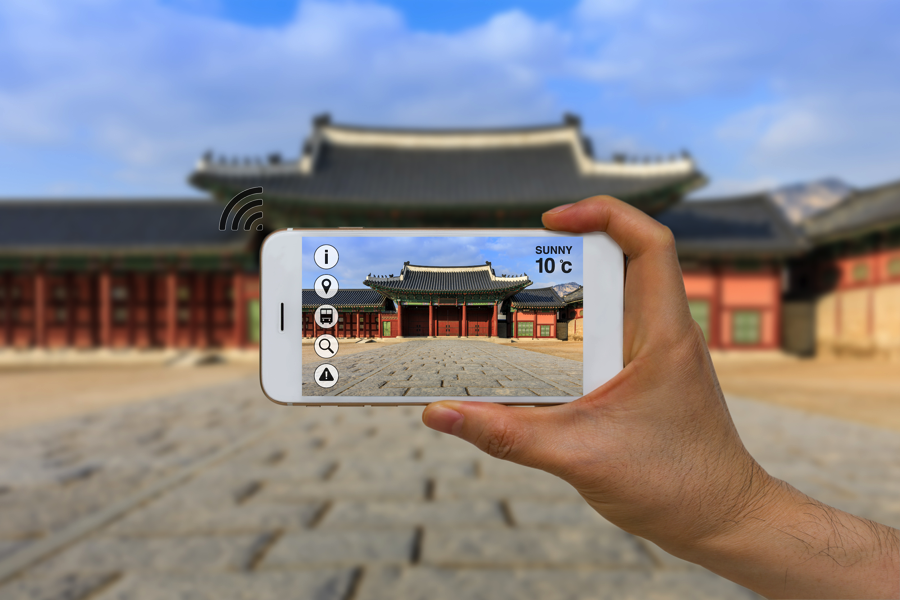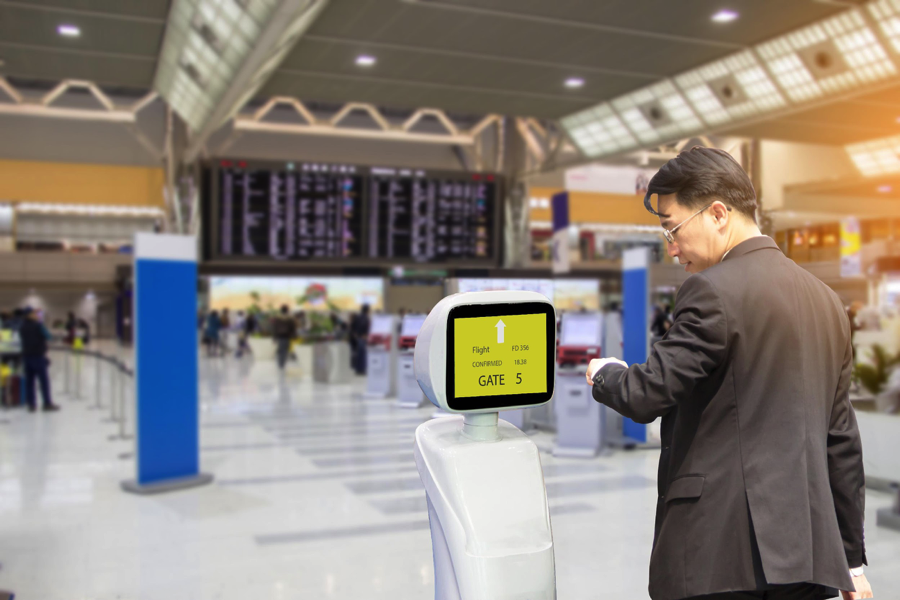The AI Revolution and the Future of Travel

Have a look down at your smartphone right now (we mean it – go ahead and look!). You’ll see that your phone already knows exactly where you are, and it likely already knows the kinds of places you like to visit, where you have been recently, and even what your future travel plans are for the next weeks and months.
The power of artificial intelligence (AI) is already in our pocket – from voice assistants like Siri, customer service assistance on chatbots, to Google Maps, AI is making our lives easier. AI is helping to improve the travel industry in hundreds of ways, and it is only going to become a more important factor as time goes by.

What is AI, and how does it work?
Artificial intelligence (AI) is a type of software that ‘learns’ from the ways in which users interact with it. AI programs collect data, analyze the data, and then add it to what it already knows about the user or situation. Over time, AI-enabled programs can advance alongside what the user needs and wants from the site.
When it comes to travel, AI programs can suggest destinations and hotels, search for products that align with specific users’ needs, and answer questions in the form of chatbots.
Booking travel is increasingly an online experience
As of 2019, more than 40% of all travel is booked wholly online. Countless travel sites have made it simple to book flights, hotels, car rentals, travel insurance, and excursions online. As a result, a huge amount of data has been collected about travelers’ habits over the past decade, and AI programmers are able to use this information to develop software.
AI algorithms are now able to finely hone and customize your travel booking experience, arming chatbot programs with the vital data they need. James Waters is the Global Director of Customer Service at travel powerhouse, Booking.com. He states that 80% of his customers prefer to handle their entire booking on their own, and so why not let AI help them complete bookings without the need for additional customer service help?

‘Click – type – tap’ is going the way of the dinosaur
In the past, many travel sites have operated on the ‘click – type – tap’ model, wherein a user clicks on what they want, types in their request, and taps ‘search.’ Today, travel companies are moving towards a model that harnesses the power of AI and includes more messaging platforms and digital assistants.
Sites like Skyscanner have led the way when it comes to using AI chatbots, creating specific chatbot programming for Skype, Facebook Messenger, and Amazon’s Alexa voice service. Users can interact with these chatbots in order to search for flights, ask questions, track prices, and share complex itineraries.
Users will no longer be encouraged to simply ‘click – type – tap’ – they will instead be encouraged to interact with chatbots and AI-enabled systems to book flights and plan travel. As James Waters states, “for us, AI is not about replacing human interaction, but is instead a vehicle to facilitate an even more personalized, instantaneously-gratifying and frictionless travel experience for consumers.”
Machine learning is being used to plan flight routes
Many international airlines are also using AI to plan their services and their routes. Instead of solely relying on quantitative analysis, airlines and travel platforms are using
AI to make their offerings match customer demand. Skyscanner is using a Python-based K-means algorithm to analyze more than 50,000 origin airports and destinations.
This ‘unsupervised’ algorithm (meaning that it doesn’t need a lot of supervision from computer scientists) has discovered a lot of new information about what customers are actually booking. This type of AI insight can help airlines decide when and where they should fly, and what times of the day travelers prefer.

AI is the future of travel planning
While you might be reluctant to give up your familiar methods of booking flights and hotels online, AI systems are making their way into all facets of the travel industry. Chat bots, intelligent programming, search assistance, and route planning are all standard options for many travel sites. Happy searching!

